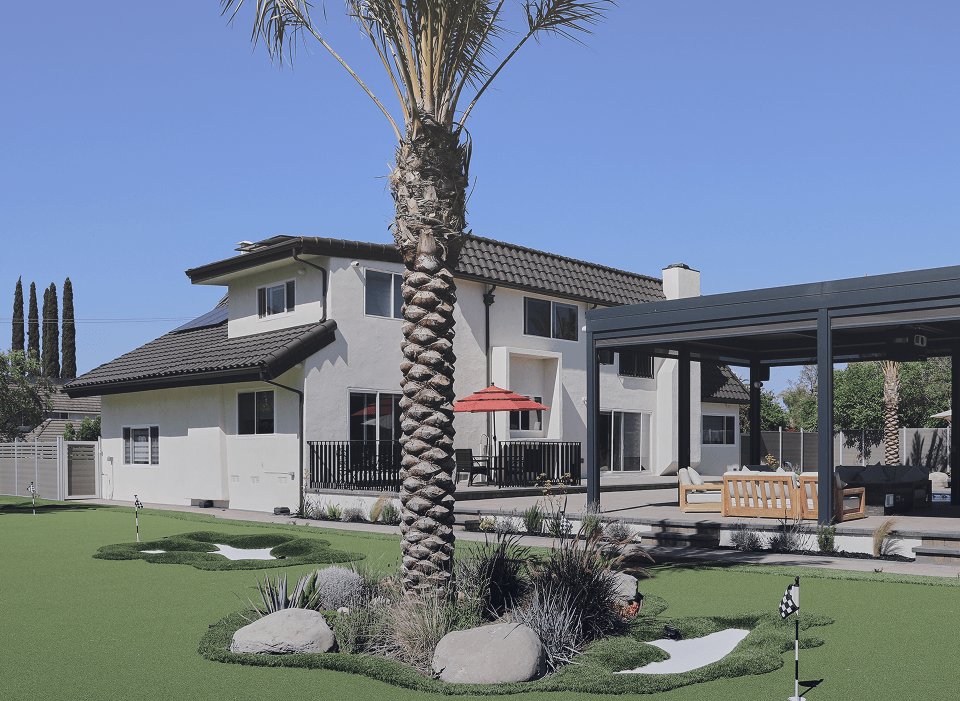
Marijuana Addiction Treatment
The usage of marijuana has been legalized, whilst, its intake for chilling out may develop a dependence rapidly that needs medical assistance. People with marijuana addiction are also at a high risk of developing addiction to other drugs.
Scroll
The growing legalization and social acceptance of cannabis have obscured a troubling reality: an estimated 1 in 3 regular users develop problematic dependence requiring professional intervention.
Unlike the dramatic crises caused by opioids or alcohol, marijuana addiction treatment addresses a quieter but equally devastating condition, one that erodes motivation, emotional stability, and life potential through gradual neurological rewiring. Modern cannabis rehab programs now employ neurobiological research to reverse these changes, combining medical support with behavioral therapies tailored to THC’s unique impact on brain chemistry.

What Is Marijuana?
Marijuana (also called cannabis, weed, or pot) is a psychoactive plant from the Cannabis sativa and Cannabis indica species. It contains hundreds of chemical compounds that interact with the body’s endocannabinoid system.
Key Components:
- THC (tetrahydrocannabinol): The main psychoactive compound that creates the “high”
- CBD (cannabidiol): A non-intoxicating compound with potential therapeutic effects
Common Consumption Methods:
- Smoking (joints, pipes, bongs)
- Vaporizing
- Edibles (cookies, gummies, drinks)
- Tinctures and topicals
The effects vary based on strain, THC/CBD ratio, and individual biology. While used recreationally and medicinally, its legal status differs globally.
Can Weed Be Addictive?
Scientific evidence confirms cannabis can indeed lead to physical and psychological dependence. When consumed regularly, THC (the psychoactive component in marijuana) alters brain chemistry by:
- Overstimulating the endocannabinoid system, which regulates pleasure, memory, and appetite
- Triggering the brain to produce fewer natural neurotransmitters
- Creating neurological adaptations that require ongoing THC to feel “normal”
The misconception that “weed isn’t addictive” stems from its slower progression to dependence compared to substances like nicotine or alcohol.
However, the growing potency of modern cannabis (with some strains exceeding 30% THC) has led to rising rates of Cannabis Use Disorder diagnoses in recent years.
What Causes Marijuana Addiction?
The development of marijuana addiction isn’t caused by any single element, but rather emerges from an intricate interplay of multiple influences. These contributing factors typically fall into three primary domains:
- Biological and Neurochemical Predispositions
Emerging research in neurogenetics reveals that certain individuals inherit a heightened sensitivity to THC’s effects. Those with close relatives who’ve struggled with substance abuse disorders may possess genetic variations that:
- Amplify dopamine response to cannabis use
- Reduce natural endocannabinoid production
- Impair impulse control mechanisms
Brain imaging studies show chronic users often exhibit structural differences in areas governing decision-making and reward processing, suggesting some brains may be inherently more vulnerable to dependency.
- Psychological and Emotional Triggers
For many individuals, cannabis use begins as a coping mechanism for untreated mental health challenges. Clinical data indicate high comorbidity rates between Cannabis Use Disorder and:
- Major depressive disorder (present in 42% of CUD cases)
- Generalized anxiety disorder (36% comorbidity rate)
- Trauma-related conditions, including PTSD
Neurodevelopmental disorders like ADHD
This pattern of self-medication creates a paradoxical effect – while providing temporary relief, prolonged use often exacerbates the original symptoms, trapping users in a cycle of escalating consumption.
- Social and Environmental Influences
External circumstances play a pivotal role in addiction development through:
- Early exposure: Initiation before age 15 increases dependency risk by 400%
- Peer networks: Social circles where use is normalized significantly elevate participation rates
- Community factors: Areas with high cannabis retail density show 22% greater incidence of heavy use
- Adverse childhood experiences: Trauma survivors demonstrate markedly higher rates of substance use as an emotional regulation strategy
Without proper treatment for cannabis addiction, users often relapse. Quality weed rehab programs provide the tools for lasting recovery.
Signs and Symptoms of Marijuana Addiction
Unlike the crisis some other substances can cause, marijuana addiction often arrives quietly. It’s not a sudden crash but a slow fade, where the substance gradually moves from the background of your life to the very center. Recognizing the signs means looking beyond the stereotypes and seeing the subtle but significant shifts in a person’s relationship with themselves, their ambitions, and the world around them.
The Shift from ‘Want’ to ‘Need’
This is the most crucial sign. Marijuana transforms from something you use to enhance an experience into something you need just to feel normal. It becomes your primary tool for managing life. You might find yourself unable to relax, sleep, eat, or socialize without it. The thought of running out creates genuine anxiety, and your daily schedule starts to revolve around when and where you can get high. Life feels dull, gray, or unmanageable without it.
Your World Becomes Smaller
As dependence grows, your life begins to shrink. Ambitions you once had seem distant or unimportant. Hobbies that used to bring you joy now gather dust unless they can be done while high. You may start to withdraw from friends or family who disapprove of your use, gravitating only toward those who share the habit. Responsibilities at work or school slide, not because you don’t care, but because the motivation to engage is gone, replaced by a constant, low-grade apathy.
The Physical Giveaways and Mental Fog
While the internal changes are most significant, there are external clues. The classic signs, like chronically bloodshot eyes (often hidden with eye drops) and a persistent cough, may be present. However, the mental toll is often more pronounced. You might struggle with short-term memory, finding it hard to recall conversations or details from the day before. Concentration becomes difficult, making complex tasks feel impossible. Instead of relieving anxiety, the absence of marijuana starts to cause it, along with irritability and mood swings that seem to come out of nowhere.
When Do You Need Marijuana Addiction Treatment?
For many cannabis users, the transition from recreational enjoyment to dependency happens gradually, often unnoticed. Because marijuana carries less social stigma than other substances, warning signs frequently get dismissed or minimized.
However, when cannabis begins dictating life choices and diminishing well-being, it’s likely time to explore professional marijuana addiction treatment.
Key Indicators You May Need Help
1. Cannabis Controls Your Choices
- Do you decline social events if you can’t use it?
- Have you turned down opportunities because they might interfere with using?
- Does your daily schedule revolve around when you can consume?
2.Life Becomes Narrower
- Have former passions lost their appeal unless you’re high?
- Do relationships suffer because you prioritize cannabis?
- Has your ambition or motivation noticeably declined?
3.Using to Avoid Reality
- Is cannabis your primary coping mechanism for stress?
- Do you use it to numb uncomfortable emotions?
- Does sobriety feel unbearable without it?
4.Failed Quit Attempts
- Have you repeatedly broken promises to cut back?
- Do withdrawal symptoms derail your efforts to stop?
- Have loved ones expressed concern about your usage?
Types of Marijuana Addiction Treatment
Effective treatment for cannabis dependency requires a multifaceted approach tailored to individual needs, combining medical support, psychological intervention, and lifestyle changes. Each treatment modality serves a distinct purpose in addressing the physical, emotional, and behavioral aspects of addiction, creating a complete framework for sustainable recovery.
Medically Supported Detox
The recovery journey typically begins with medically monitored detox, where healthcare professionals help manage withdrawal symptoms in a controlled environment. While cannabis withdrawal isn’t typically dangerous, symptoms like mood disturbances, sleep difficulties, and physical discomfort can undermine recovery efforts without proper support. Medical supervision ensures comfort and safety during this initial stabilization phase while preparing individuals for subsequent therapeutic work.
Inpatient and Residential Care
For those requiring substantial support, residential treatment offers a structured, substance-free environment conducive to healing. These immersive programs remove external triggers and provide constant access to clinical support while incorporating evidence-based therapies. Participants benefit from therapeutic communities that foster accountability and shared growth, along with comprehensive care addressing co-occurring mental health conditions that often accompany substance use disorders.
Outpatient Programs
Outpatient rehabilitation delivers flexible treatment options for individuals balancing recovery with personal responsibilities. These programs typically involve regular therapy sessions while allowing participants to apply newly acquired skills in real-world settings. Ranging from intensive day programs to weekly counseling, outpatient care serves both as an entry point for treatment and as continuing care following residential programs, supporting gradual reintegration into daily life.
Core Therapies
The core of effective treatment lies in scientifically validated therapies that promote lasting behavioral change. Cognitive Behavioral Therapy helps identify and modify thought patterns contributing to substance use, while Motivational Enhancement Therapy strengthens personal commitment to change.
Supplementary approaches, including mindfulness training, relapse prevention planning, and family therapy, create a robust toolkit for maintaining sobriety. These interventions collectively empower individuals to develop healthier coping mechanisms and rebuild a purposeful life beyond addiction.
How Long Is Marijuana Addiction Treatment?
The path to recovery varies significantly for each individual, as marijuana addiction treatment isn’t a one-size-fits-all process. Several key factors influence the timeline:
Program Type
- Short-term intensive programs: Typically 30-45 days
- Standard residential treatment: Usually 60-90 days
- Extended care options: 6 months or longer for complex cases
Individual Considerations
- Severity and duration of cannabis use
- Presence of dual diagnosis (co-occurring mental health conditions)
- Personal response to therapeutic interventions
Treatment Phases
- Detoxification: 1-2 weeks (managing withdrawal symptoms)
- Primary treatment: 4-8 weeks (core therapeutic work)
- Aftercare planning: Ongoing support post-treatment
The most effective weed rehab programs emphasize quality over arbitrary timelines, adjusting duration based on continuous clinical assessments
Practical Steps for Supporting a Loved One
Watching someone struggle with marijuana dependency can be challenging, particularly when societal messages minimize its risks. These practical strategies can help you provide meaningful support while maintaining your own well-being.












